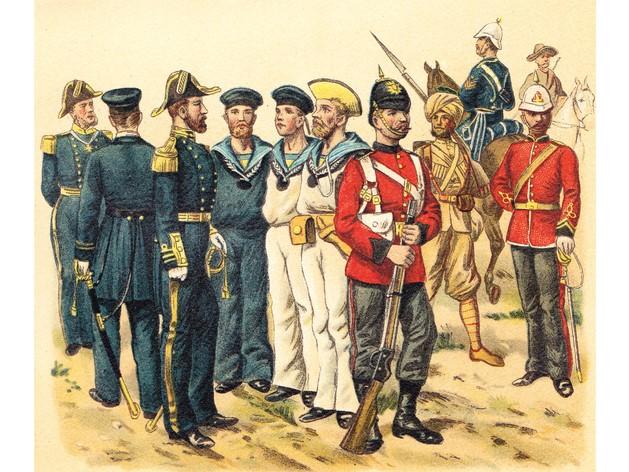
Does decolonisation in the West do anything for the developing world?
Expanded reading lists do little for the student whose visa is denied because there’s not enough money in their parents’ bank account, says Farish A Noor

You may also like
Popular resources
Decolonisation has become a feature of academic life in many institutions of higher learning in North America and western Europe over the past few decades, and from the outset I would state that this is not only a good thing but also something that was long overdue.
From both an ethical and academic point of view, a serious and thorough overhaul of some of the curricula in the universities of the West was not only necessary but has opened new vistas and opportunities for research into other non-Western thought systems, philosophies and value systems, which in turn has expanded and enriched our understanding of the world as a whole.
In the domains that I’m most familiar with – history and philosophy – it’s clear that several significant advances have been made, such as the way we now see philosophy as a more global endeavour and are less and less beholden to neat (and false) dichotomies such as the distinction between “Western philosophy” and “Eastern philosophy”. Historians, too, have come to expand their domain of research and accept that in the historical accounting of the world there are (and have always been, in fact) myriad ways through which history was recorded and recounted by different communities around the world.
- Can there ever be a neat history of colonialism?
- Decolonising medicine, part one: taking the first steps
- Decolonising the curriculum – how do I get started?
It should be noted, however, that these advances in the universities and colleges of North America and western Europe were partly prompted by the debates that have been going on there for decades and which, in recent years, have been accompanied by forms of identity politics and cultural contestations that began in the developed world and resonate most closely with those who live and work there. It should also be noted that the decolonisation wave has been most keenly seen and felt in the humanities and social sciences and has not been as pronounced in the hard sciences.
The question that remains is this: with many of the universities in the developed, Western world shifting towards decolonisation, how sincere is this move, and how does it impact on other scholars and students from the rest of the world? Does the decolonisation of curricula in Western academia actually have an impact on the developing world and/or on those nations and people who were, in fact, once colonised?
While none of us might argue that decolonisation is a bad thing per se – unless it is done for purely cosmetic or commercial reasons, of course – we still need to ask if such reforms truly have an impact on the lived realities of scholars and students from the developing world, some of whom may be living in conditions comparably worse than their Western counterparts. Related to this is the question of who is meant to benefit from the decolonisation of academia in the West – Western scholars and students or the international academic community as a whole?
If the answer to that question is the latter, we need to note that many students from the developing world who aspire to study in the West may not be going there for a degree or diploma in the humanities and social sciences in the first place. For thousands of students from Asia, Africa and Latin America, it is knowledge of the hard sciences and practical courses that matter the most – in fields such as engineering, medicine and finance, all of which are critical for the needs of development and nation-building in their own countries.
But we should also remember that students from the non-Western world face very different challenges and difficulties when it comes to the pursuit of higher education abroad. These may include things such as obtaining a student visa in the first place, securing some form of funding or support to further their studies, struggling with living costs when their own currencies are next to worthless compared with the currencies of North America and Europe, or having to cope with being refugees or stateless citizens.
Laudable though the effort to decolonise academia may be – and I do consider it a genuinely worthwhile effort – it unfortunately does nothing to remedy the host of political-economic ills and handicaps faced by millions of young scholars from the developing Global South at present.
Compounding the irony of the situation is the fact that much of the effort at decolonisation thus far has been directed towards correcting the historical biases and wrongs of the past and addressing the injustices of Empire. Yet one of the most obvious legacies of Empire happens to be the very real and visible power and economic differentials we see today, made manifest in the economic inequalities between the Global North and Global South. As if to hammer this point home, this was made painfully explicit during the Covid pandemic, when it was clear that the richer countries of the developed world were able to secure a surplus of vaccines while poorer, often postcolonial countries were forced to accept whatever crumbs were left on the floor.
So while I and many other scholars applaud institutions of higher education in the developed world for their efforts to address the injustices of Empire and seriously attempting the decolonisation of their own curricula and teaching philosophies, such efforts need to be accompanied by an equally serious effort to address the power and economic differentials that exist in the world today, and which render hollow any claims to a global academic community of scholars and scholars-in-the-making.
It is not enough for Western universities to say they have revised their history curriculum or expanded their reading lists to include Asian and African philosophers, historians and authors. None of this makes any difference to a student who is told that their visa was denied because there were not enough dollars/pounds/euros in their family’s bank account, or that their country was deemed a “rogue state” by some nameless, faceless securocrat in the West.
To have true impact, Western universities can and should pursue all other means through which education can reach everyone, from offering cheaper online courses to students who simply cannot travel to the West to working towards joint courses and joint programmes with universities in the developing world.
It is through such initiatives that the effort to decolonise universities in the West can have some resonance beyond its borders and contribute to the creation of a global community of scholars for whom decolonisation can become a meaningful thing rather than a PR exercise to polish the image and reputation of some universities.
Farish A Noor is a professor in the department of history in the Faculty of Arts and Social Sciences at the University of Malaya, Malaysia.
If you found this interesting and want advice and insight from academics and university staff delivered direct to your inbox each week, sign up for the THE Campus newsletter.



Comments (0)
or in order to add a comment